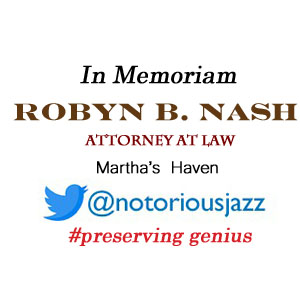
Daily Dose Of Jazz…
Alan Haven was born Alan Halpern on April 1, 1935 in Prestwich, Lancashire, United Kingdom. His early work was performed on a Lowrey organ. He collaborated with John Barry on two Bond movies ~ From Russia With Love and Dr. No, and Barry wrote an extended jazz organ solo for his Oscar-winning theme from The Lion in Winter and recorded it as a single.
He released several albums in the 1960s and 1970s, initially on Fontana Records, CBS Records including a recording of a live set at Ronnie Scott’s in London, England. He released Live at Annie’s Room and Mastersound, remastered and re-released three of Alan’s previous albums Organ Show, Images and Collector’s Item.
Local musicians, including Eric Delaney, organized a big band night featuring Alan. With his wife Karen they produced four albums which were Two, Day By Day, Libra and By The Seaside, which was released in 1992.
Organist Alan Haven transitioned on January 7, 2016.
More Posts: bandleader,history,instrumental,jazz,music,organ
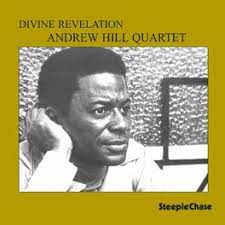
Daily Dose Of Jazz…
Jimmy Vass was born March 31, 1937, in Philadelphia, Pennsylvania and acquired his first saxophone at age 18. After honing his chops on the local club scene, he relocated to New York City in 1963, working a series of day jobs while moonlighting as a musician.
Vass first appeared on record in 1968 via Sunny Murray’s Hard Cores. With 1971’s Soul Story, he began an extended collaboration with the great soul-jazz organist Charles Earland. His most notable partnership paired him with avant-jazz pianist Andrew Hill, beginning with 1975’s Divine Revelation.
He played on Roberta Flack’s Feel Like Makin’ Love. He also lent his talents to recording sessions with Muhal Richard Abrams, Rashied Ali, Charles Mingus, Lionel Hampton, Ronnie Boykins and Woody Shaw. Never leading a recording date of his own, in the autumn of his career Jimmy worked as a music instructor and led his own New York-based group playing standards and originals.
Alto and soprano saxophonist and flutist Jimmy Vass, who emerged as one of the premier jazz sidemen of the 1970s, transitioned on September 21, 2006, at the age of 69.
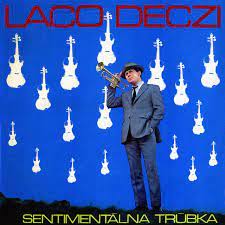
Daily Dose Of Jazz…
Ladislav Déczi was born on March 29, 1938 in Bernolákovo, Czechoslovakia and showed an interest in the trumpet while in elementary school. He went through several music ensembles in high school and during his military service performed in Prague, Czechoslovakia. After his discharge he remained in Prague and started performing with the Rokoko Theater Sextet and then with the Jazz Outsiders. He then went on to work with Karel Velebny’s S+HQ and as the frontman for the Reduta Quartet.
By the mid-Sixties he founded Jazz Celulla, joined the Czechoslovak All Star Band, the Jazz Orchestra of the Czechoslovak Radio, and the Dance Orchestra of the Czechoslovak Radio. He recorded several solo albums, composed orchestral compositions.
Emigrating to America in 1986 he again took the frontman space for Celula New York. He performed with Elvin Jones, Bill Watrous, Junior Cook, Dave Weckl and Sonny Costanzo. He recorded several duo albums with Sarka Dvorak and composed an abundance of music for film and television productions. He has won several awards during his career and has toured Eastern Europe especially his homeland, Germany and Austria.
Trumpeter, composer, and bandleader Laco Déczi, who also paints, continues to perform, compose and record.
More Posts: composer,history,instrumental,jazz,music,trumpet
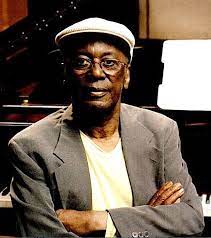
Three Wishes
Nica threw out the question to Andrew Hill what his three wishes would be and after careful thought replied:
- “To be able to take care of my family the way I want to be able to take care of them.”
- “To be able to play six months out of the year, and to be able to woodshed six months out of the year..”
- “To learn how to be a man.”
*Excerpt from Three Wishes: An Intimate Look at Jazz Greats ~ Compiled and Photographed by Pannonica de Koenigswarter
More Posts: baroness,composer,history,instrumental,jazz,music,pannonica,piano,three,wishes
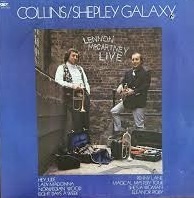
Daily Dose Of Jazz…
Burton L. Collins was born on March 27, 1931 in New York City but raised in Philadelphia, Pennsylvania. During the 1950s he worked with Dizzy Gillespie, Urbie Green, Neal Hefti, Woody Herman, Elliot Lawrence, Johnny Richards, and Claude Thornhill.
Relocating to New York around 1960 he played in Broadway orchestras and in ensembles with Cannonball Adderley, Albert Ayler, Jimmy McGriff, Blue Mitchell, Duke Pearson, and Stanley Turrentine, among others. With Joe Shepley he formed the group Collins-Shepley Galaxy in 1970, recording two albums, including a Lennon/McCartney tribute. Later in the decade he played flugelhorn with Urbie Green again as well as with Janis Ian, Lee Konitz, David Matthews, and T. Rex’s album Electric Warrior.
Over the course of his career he recorded a hundred albums as a sideman with, among others, Manny Albam, Woody Herman, Duke Pearson, Cy Coleman, Frank Foster, Sal Salvador, Pat Moran, Astrud Gilberto, George Benson, Chris Connor, Manhattan Transfer, Tony Bennett, Luiz Bonfa, Airto Moreira, Paul Desmond, Eumir Deodato and Lalo Schifrin.
He played little after the 1970s, though he appeared on record with Loren Schoenbergin 1987. Trumpeter Burt Collins transitioned on February 23, 2007 in Philadelphia.
More Posts: history,instrumental,jazz,music,trumpet


